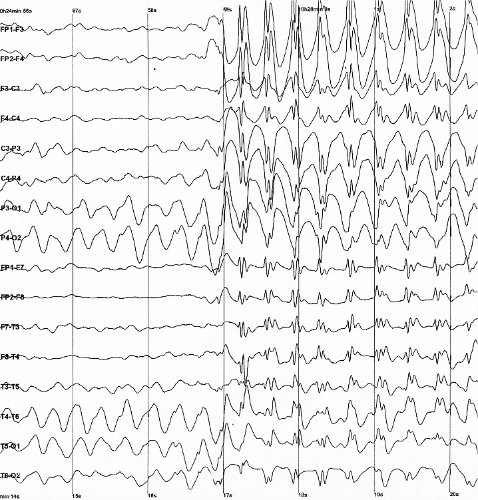Знаете ли вы?
Кликните два раза на слово, чтобы найти его в TermGallery.
Кликните два раза на слово, чтобы найти его в TermGallery.
Значения термина epileptiform на английском

Human neurological disease causing seizures.
Синонимы
Examples for "epilepsy"
Examples for "epilepsy"
1
Significance: The results highlight the importance of detailed epilepsy information for families.
2
Objectives: The management of intractable epilepsy in children is a challenging problem.
3
NICE introduced extremely restrictive guidelines; and few epilepsy patients received a prescription.
4
Results: The average duration of epilepsy in this group was 20 years.
5
Animal studies and clinical observations suggest that epilepsy is associated with inflammation.
1
Background: Childhood absence epilepsy is a common generalized epilepsy syndrome characterized by childhood onset of frequent sporadic absence seizures.
2
We believe that frontal onset absences should be considered as a secondarily generalized epilepsy syndrome, originating in the frontal regions.
3
All cases reported in 2006-2008 were analyzed retrospectively; available clinical information was reevaluated and classified by seizure type and epilepsy syndrome.
4
Autosomal dominant nocturnal frontal lobe epilepsy (ADNFLE) is a familial partial epilepsy syndrome characterized by seizures suggesting a frontal lobe origin occurring predominantly during sleep.
5
Patients with a wide range of epilepsy syndromes and etiologies were registered.
1
Thus, impairment of potassium-dependent repolarization is likely to cause this age-specific epileptic syndrome.
2
Generally, West syndrome is an intractable epileptic syndrome in infancy, although spontaneous remission has been reported in some cases.
3
Treatment is most successful when tailored to the particular seizure type, epileptic syndrome, and special needs of the individual patient.
4
Lennox-Gastaut syndrome is a severe childhood epileptic syndrome with encephalopathy and multiple seizure types, which are often intractable to treatment.
5
Generalized epilepsy with febrile seizures plus (GEFS+) is an early onset febrile epileptic syndrome with therapeutic responsive (a)febrile seizures continuing later in life.
1
Epilepsy is a common seizure disorder affecting approximately 70 million people worldwide.
2
Sure enough, Seth read that Dustin did have a well-documented seizure disorder.
3
Edsel had a seizure disorder that required medication and a special diet.
4
The mother-of-two was diagnosed with PTSD and non-epileptic seizure disorder in 2008.
5
This area was ultimately resected because of persistence of a severe seizure disorder.
Использование термина epileptiform на английском
1
Specific features of epileptiform discharges are associated with clinical seizures in AD.
2
Seventeen children had no focal interictal epileptiform discharges in EEG at follow-up.
3
These findings suggest that cooling may disrupt network synchrony necessary for epileptiform activity.
4
Cooling dramatically attenuated gamma oscillation and abolished epileptiform bursts in a reversible manner.
5
However, the incidence of subclinical epileptiform activity in AD and its consequences are unknown.
6
Conversely, 11% of hyper-clusters rated epileptiform had no corresponding visual spike type.
7
Neuronal and field epileptiform bursting occurred in the early phases of the hyperthermic SD.
8
The devices detect normal physiologic and epileptiform activity, both in acute and chronic recordings.
9
Tetanic stimulation at high intensity elicited not only gamma oscillation, but also epileptiform bursts.
10
Breathing oxygen at sufficiently elevated pressures can trigger epileptiform seizures.
11
Interpretation: Extended monitoring detects subclinical epileptiform activity in a substantial proportion of patients with AD.
12
Methods: Magnetic source imaging of interictal epileptiform dipoles was studied in 53 epilepsy surgery candidates.
13
Many surgical procedures for the treatment of epileptiform encephalopathies have been reported in the literature.
14
Two epileptologists blinded to diagnosis visually reviewed all EEGs and annotated all potential epileptiform abnormalities.
15
Most epileptiform abnormalities show a negative polarity on EEG.
16
Their bilateral iEEG findings prior to complete CC showed generalized epileptiform discharges with no clear lateralization.
Об этом термине
Частые словосочетания
Больше словосочетаний
Translations for epileptiform
русский
португальский
испанский
каталонский
Epileptiform через время
Epileptiform в диалектах

Соединенные Штаты Америки
Частое

